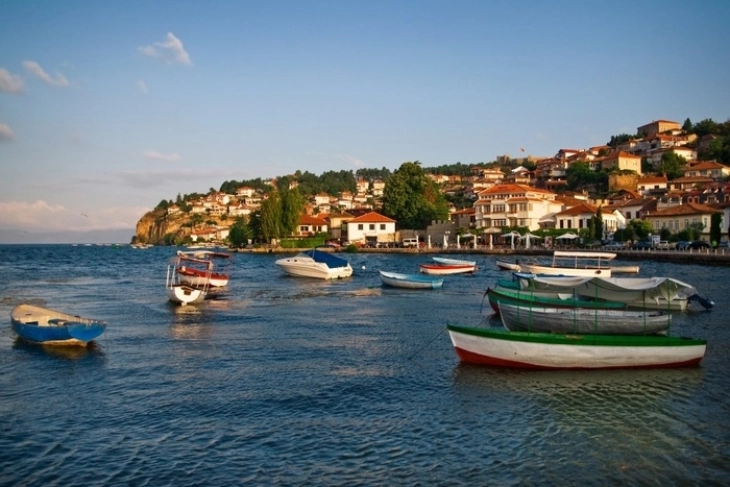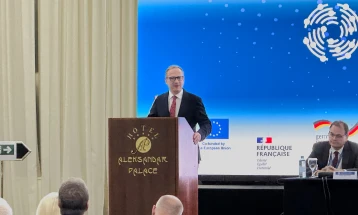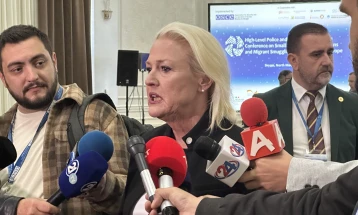UNESCO asks report on implementation of Ohrid region recommendations to be submitted by Feb. 1

Ohrid, 10 August 2021 (MIA) – UNESCO’s World Heritage Committee has requested North Macedonia and Albania, as countries that manage the Natural and Cultural Heritage of the Ohrid region, to submit by 1 February 2022 a report on the progress made in the implementation of recommendations for protection of the Ohrid region.
According to the decisions adopted by the World Heritage Committee at the extended 44th session, the two States Parties are urged to develop a detailed Strategic Recovery Plan with an associated phased action plan that sets out clearly defined aims and outcomes to mitigate threats to OUV with a set of agreed actions including a timeframe both in the short and longer term as well as a phased action plan, based on the full recommendations of the 2020 mission, and which would provide an overarching transboundary political and institutional framework for addressing the severe and multiple threats facing to the property; and to present the Strategic Recovery Plan to the Advisory Bodies and the World Heritage Centre in February 2023.
Moreover, the Committed has requested that States Parties submit to the World Heritage Centre, by 1 February 2022 a progress report, and by 1 February 2023, an updated joint report on the state of conservation of the property, including a report on the progress made in the implementation of the above for examination by the World Heritage Committee at its 46th session, with a view to considering, in case of the confirmation of the potential or ascertained danger to its Outstanding Universal Value, the possible inscription of the property on the List of World Heritage in Danger.
The Committee added that while some decisions and missions’ recommendations over the past six years have been addressed, several have only been partly or insufficiently implemented, and a number of them not addressed at all.
According to decisions, it expressed utmost concern at the findings of the 2020 joint World Heritage Centre/ICOMOS/IUCN Reactive Monitoring mission that there has been insufficient action to halt the slow erosion of the attributes of the Outstanding Universal Value (OUV) in the urban fabric and the wider landscape arising from inappropriate conservation, reconstruction and development, or to re-consider alternative outcomes for major projects relating to railway and road development.
The World Heritage Committee noted with grave concern the conclusions of the 2020 mission, which considered that tall buildings close to the lake, the poor architectural quality of the built environment (especially in the main towns of Ohrid, Struga, and Pogradec (buffer zone), but also along the coast outside urban centres), and the inappropriate and excessive use of the coastal zone for tourism infrastructure, have all had a highly negative impact on OUV of the property.
Also, it noted with concern that in spite of recent initiatives, the management system appears still not to be fully mandated to maintain OUV due to conflicting priorities, poor implementation of the legal framework and little involvement of civil society, all of which have combined to fragment the management system.
UNESCO’s World Heritage Committee took note of the ongoing process for the proclamation of Lake Ohrid as a Monument of Nature in North Macedonia, including the development of a Valorization study, as well as a preliminary decision to declare the Studenčišča Marsh a nature park, and requested the State Party of North Macedonia to ensure that these processes are fully integrated with other relevant management and planning processes and are aimed at strengthening the overall management of the property, including through the establishment of functioning management structures.
The Lake Ohrid region, a mixed World Heritage property covering c. 94,729 ha, was first inscribed for its nature conservation values in 1979 and for its cultural heritage values a year later, making it one of only 38 mixed World Heritage properties. The property was extended to include the rest of Lake Ohrid, located in Albania, in 2019.







